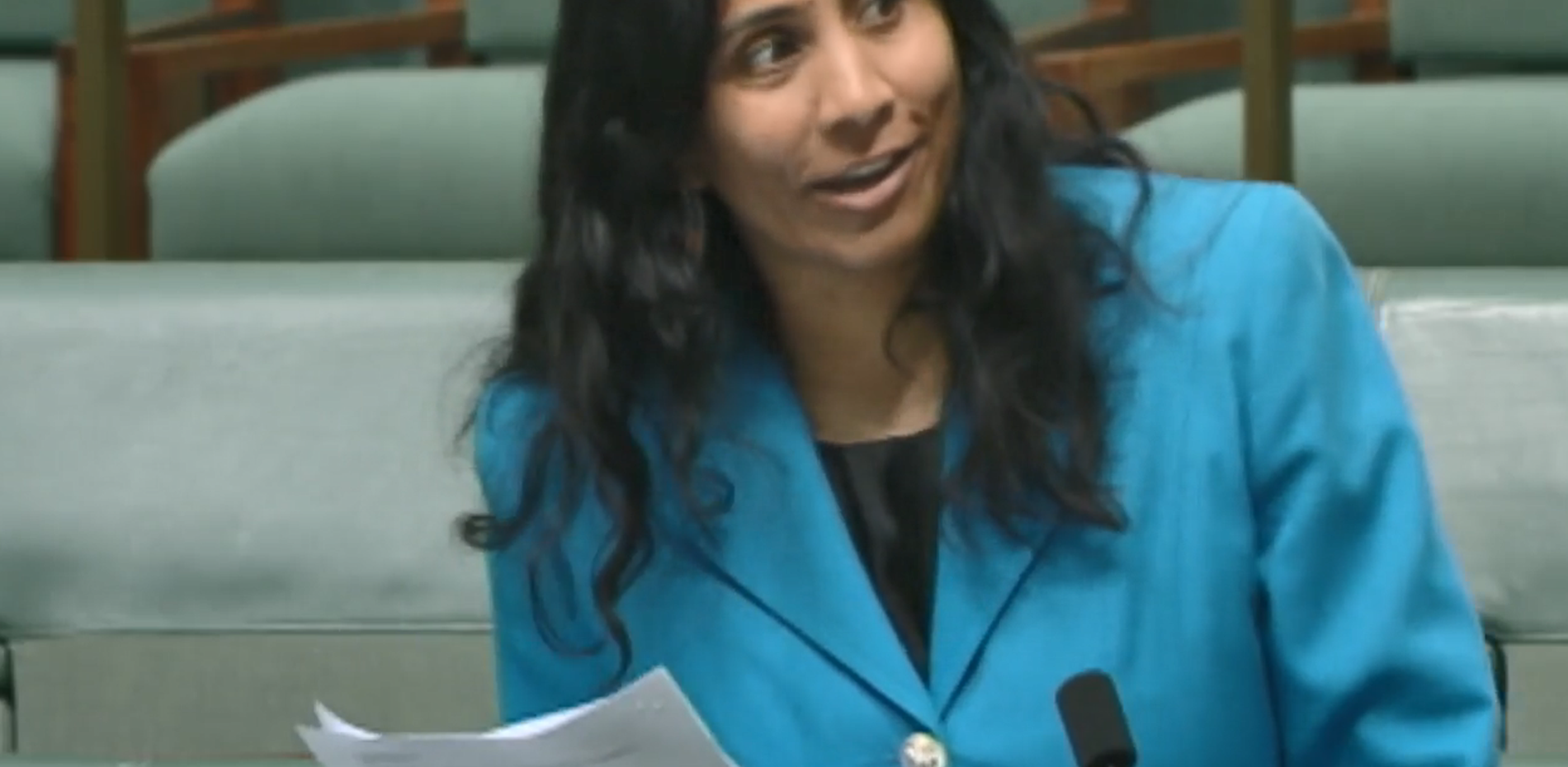Higher Education Support Amendment (Response to the Australian Universities Accord Interim Report) Bill 2023
SPEECH TO THE HOUSE OF REPRESENTATIVES - SECOND READING SPEECH DEBATE
6 September 2023
Mr. Speaker/Deputy Speaker,
I welcome the opportunity to contribute to this debate.
It is one of significance for the future of Australia’s higher education system and the future of our country.
The journey to draft this bill has been extensive and inclusive, involving thorough consultations with the tertiary sector.
This process was driven by an assessment of our national needs.
Aligning changes to the higher education sector to the needs of the nation was an important objective of the review.
Another overarching objective was to forge a sustainable, long-term commitment among stakeholders to chart the future of Australian higher education.
The Australian Universities Accord, led by the distinguished Professor Mary O'Kane, the former Vice-Chancellor of the University of Adelaide.
I should note, Professor O’Kane was also the first woman to become a dean of engineering at any Australian university.
The review undertook an exhaustive review.
It encompassed a multitude of critical issues facing our higher education system.
This included access and inclusivity, accountability, the interface between vocational education and higher education, sustainability of the higher education sector, and the cultivation of new knowledge and innovation that keeps up with the demand for skills.
This comprehensive review, the most extensive in 15 years, engaged individuals from various sectors, spanning business, STEM, humanities, law, and across the political spectrum.
The goal was to ensure a diverse range of perspectives and experiences informed the process. It's worth noting that our universities have undergone significant transformations since my own time as a student.
I attended Curtin University, where I studied applied chemistry and chemical engineering on a HECS Exception Scholarship, due to being a female student in a non-traditional field, hailing from rural Western Australia.
This scholarship was instrumental in propelling me towards a career in engineering and consultancy for the mining industry, particularly in the realm of climate change.
It ignited my passion for learning and instilled in me a deep respect for the tertiary sector—a sentiment that endures to this day.
Our universities have evolved with the advent of new technologies, which have redefined both teaching and learning methodologies.
The changing landscape necessitates adapting our course offerings to meet the surging demand for skills, knowledge, and technological innovations.
The rapid development of Artificial Intelligence, for instance, has ushered in a new era, demanding a paradigm shift in teaching, learning, and research.
Rather than viewing these changes as threats, we should seize them as opportunities.
However, to capitalise on these opportunities, we require a coordinated, national, and integrated approach.
The approach needs to be capable of enhancing our capabilities and addressing the ever-evolving landscape in technology and innovation, in 2023 and beyond.
This bill is a significant stride in that direction.
The House should also be reminded, the government did not draft this this legislation in isolation.
The changes proposed by the Bill emerged from a process that involved listening, consultation and the incorporation of feedback.
This is because we have a government that listens and wants to work together with stakeholders to create change.
Working together is what this government is all about.
Unlike the top-down approach of the former government that failed to take the opportunity to listen.
So, we are making sure we do not repeat the same mistakes.
Instead, we are creating a new culture of government and public policy in collaboration with the people that are on the ground making the decisions and implementing change.
Its only through this approach that we can achieve success.
There is no going back to the ways of the previous government. No one wants that.
The measures introduced by this bill to support students have been fine-tuned based on consultations and reviews, resulting in the formulation of guidelines that delineate the obligations of all universities.
These guidelines underscore the identification of students facing challenges in their courses and mandate providing appropriate support to these individuals.
The key provision of this bill is to cease 50% pass rule, which previously required students to pass 50% of the units they undertook to receive Commonwealth-supported places and FEE-HELP assistance.
This recommendation garnered substantial support from stakeholders in the tertiary sector, including Universities Australia, University of Technology Sydney, Western Sydney University, Charles Darwin University, and Griffith University.
Another pivotal recommendation, born out of the Accord's review, and supported extensively by the higher education sector, is the extension of demand-driven Commonwealth Supported Places to all First Nations students, regardless of their location.
I believe this change will significantly benefit First Nations students who complete their high school education in metropolitan areas.
It will provide them with a smoother transition to higher education, which can often be an overwhelming prospect.
For instance, consider the Rotary Residential College in my electorate, which offers quality accommodation for country high school students in Perth, from Year 7 to 12.
These students attend various State Government Metropolitan High Schools, often enrolling in specialised courses available at these schools.
During their time at Rotary College, students become deeply integrated into the local community, establishing a network of support.
Allowing all First Nations students who choose to remain in the metropolitan area after high school to access these Commonwealth Supported Places opens new pathways for them, thanks to the changes proposed in this Bill.
This is just one example of the countless opportunities that will arise from the reforms recommended by the Albanese Government.
We must strengthen the support available to students aspiring for higher education.
Our workforce depends on them.
Our nation relies on their skills and knowledge.
In our rapidly changing economic landscape, we need students who can adapt to our country's evolving needs.
We need them to take their skills to workplaces, to teach, inspire, and contribute to our communities in ways that will yield benefits for years to come.
Furthermore, diversity in our workforce leads to better outcomes, and this bill is our chance to influence the future of higher education to ensure its equitable for all Australians, regardless of where they reside.
Our education system has served me well, providing opportunities I might not have otherwise had.
I wish the same for all Australians.
That is why I wholeheartedly commend this bill to the House.
It is a significant step forward in securing a brighter, more inclusive future for our nation.
Thank you, Mr Speaker



